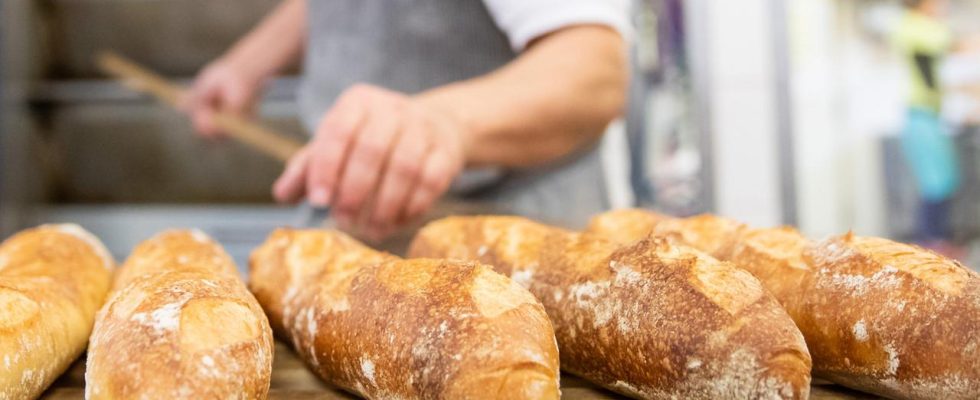background
In the past two years, baked goods have become significantly more expensive. The prices for grain have recently fallen again. Why bread probably still won’t get cheaper.
In the Brücklmaier bakery in Munich, a pretzel currently costs 95 cents. Two years ago it was 85 cents. The baker also had to increase prices for other baked goods.
The Federal Statistical Office recorded a price increase of around 30 percent for bread and grain products between February 2022 and February 2024. The reasons for the price increases for food included increased costs for energy and wages, but also for raw materials.
Grain cheaper again after record prices
The prices for bread grains are traded on a separate exchange; Certain price fluctuations are therefore normal. Shortly after the start of the war against Ukraine, prices rose sharply: to more than 400 euros per ton in May 2022.
In the past few months, however, prices have fallen again, most recently to around 196 euros per ton. If grain – or flour – is the most important raw material for the baker, shouldn’t bread prices also fall again?
The price of flour is just one factor
Master baker Sebastian Brücklmaier explains that flour is the main raw material for his products. But flour and other raw materials would only account for about 20 percent of the cost of his operation.
This value corresponds to figures from the Central Association of the German Bakery Trade. As a result, the largest cost factor, at 40 to 50 percent, is personnel. Materials and raw materials account for 18 to 25 percent. The price of flour therefore has only a small influence on the prices at the bakery counter.
Energy prices rose with some delay
Energy accounts for around eight to twelve percent of the costs; In some cases, however, the prices have only risen with a delay. Many bakeries had long-term contracts with energy suppliers, which have now gradually expired.
“The new contracts were significantly more expensive. I can speak for us as a company: That means about three times the costs,” said the baker.
Grain prices later affect the price of flour
In addition, just because grain prices are falling does not automatically mean cheaper flour prices. Brücklmaier sources his flour from the region; it is supplied by the Vogtmühle in Illertissen, Swabia.
The mill’s managing director, Isabel Vogt, feels a relief in grain prices. However, her company still stores a few tons of grain from farmers in the region: “If grain prices fall, we cannot automatically lower the price. There is always a slight delay in a one to two month cycle.”
So it may be that the price of flour for baker Brücklmaier will actually become a little cheaper again. He currently pays 440 euros for a ton of flour, but at peak times he has paid 530 euros per ton.
Demand for greater appreciation for craftsmanship
The professional organization “Die Freien Bäcker” explains that costs will not fall, especially for smaller craft businesses – on the contrary. She therefore calls for more appreciation for the bakery craft.
“The reason why bread and baked goods in the artisan bakery feel “expensive” is still the competitive inequality: the inequality between, on the one hand, the concept of rural agriculture and food crafts (…) and, on the other hand, a concentrated, capital-intensive agricultural and food industry (…) ” says the organization.
Baker Brücklmaier emphasizes that he has not passed on all of his increased costs to his customers. He is still trying to cushion the stress as best he can. It is therefore unlikely that bread and baked goods will become cheaper again in bakeries – even if grain prices on the world market continue to fall.

